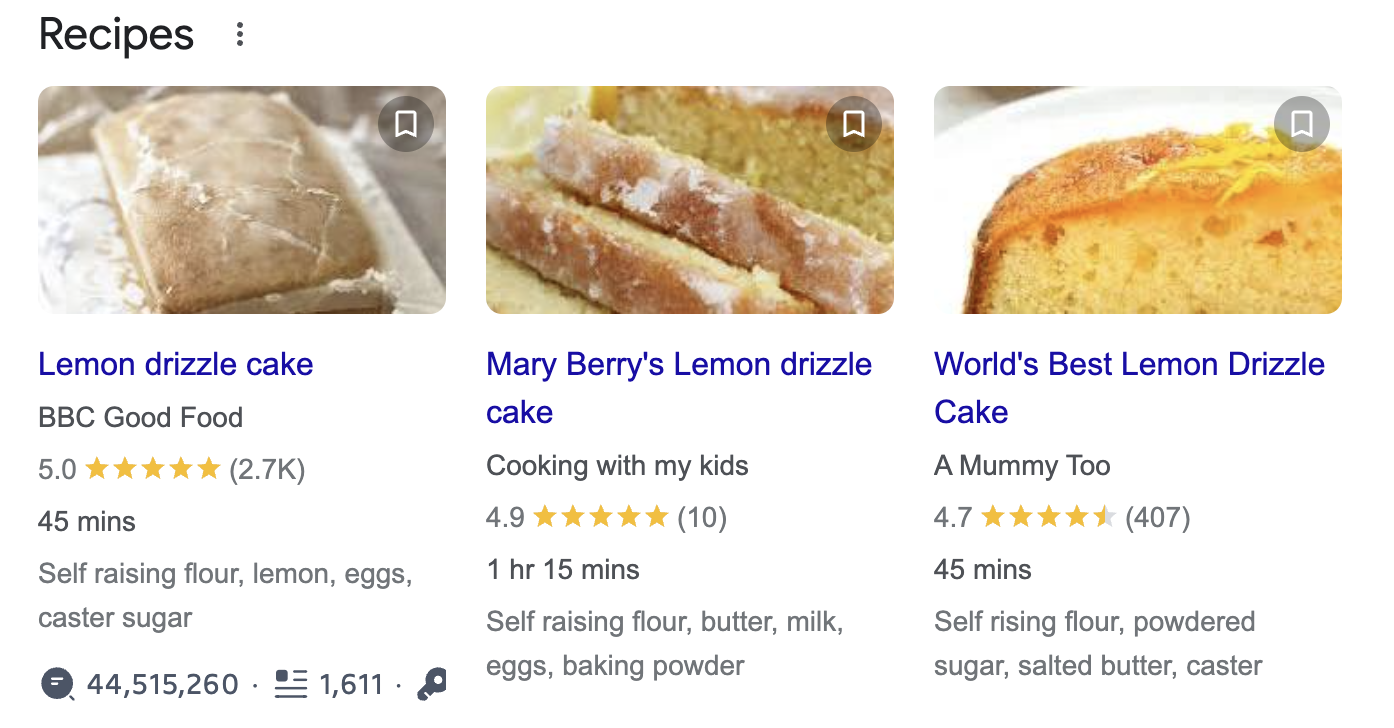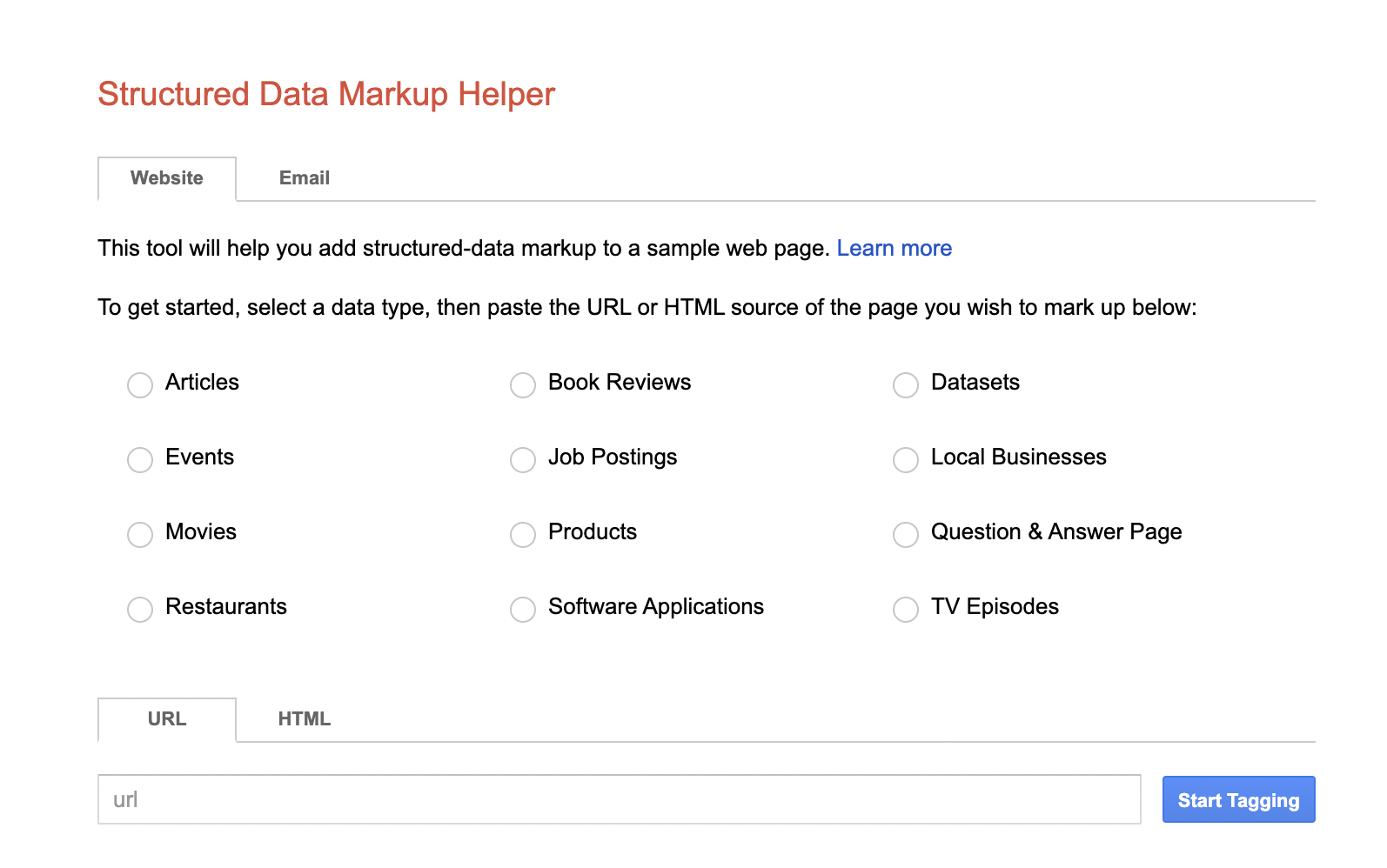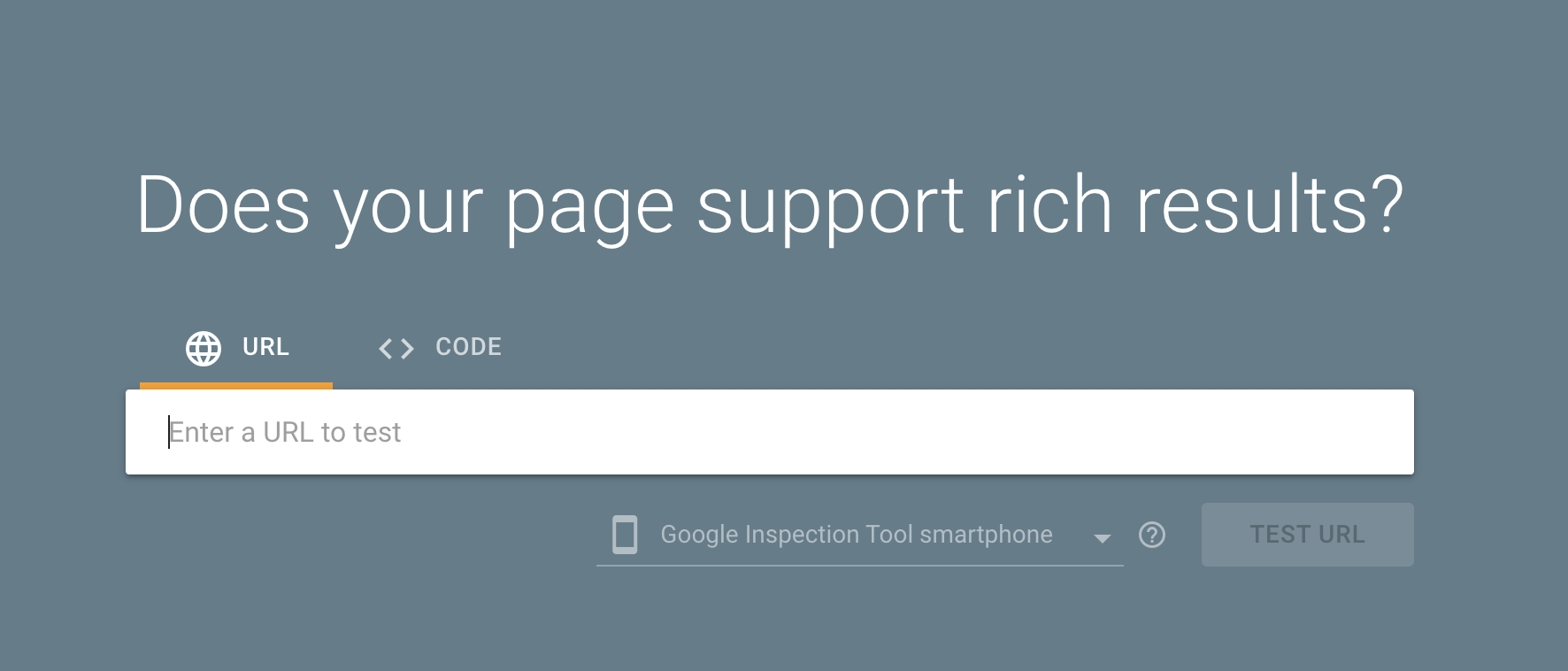The Secret To Boosting Your SEO: 6 Benefits of Schema Markup (And How To Get Started Setting Yours Up)
Jun 21, 2023
First of All, What is Schema Markup?
Schema markup, or structured data, is data that you put into your website's code which creates a structure that makes your website more easily understood by search engines like Google.
Basically, the code you put on your site flags up specific content, that gets noticed by Google when its crawlers visit your site. Google notices this data and highlights it in the search results.
By using schema markup, you can showcase all sorts of business-critical information, such as reviews, locations, events and products, directly on the SERPs, which means you're likely to get more visitors.
Today, I'm going to explore what schema markup is and give you some very good reasons for getting your head around setting up schema markup on your own website.
But before we get stuck in, a word of warning.
Using structured data effectively on your website won't directly impact your rankings, in fact, Google has said straight out that using Structured Data is not a ranking signal.
What structured data DOES do is improve your CTR (Click Through Rate), which is a ranking factor, so think of it as an indirect ranking factor, but one that's well work exploring.
What Are The Benefits of Using Schema Markup?
The most significant benefit of using schema markup, or structured data, is increasing click-through rates which improves your organic traffic and boosts your search engine rankings.
Clickthrough rate (CTR) is the number of clicks a link receives divided by the number of times the link is viewed. A higher CTR indicates that your content is more appealing to users, which makes it more likely that it will show up in the SERPs.
But there are other benefits too. Let's look at each one individually.
Schema Markup Benefit One: Better Click-Through Rates
Schema Markup can significantly improve click-through rates, making websites more indexable and stand out in search engine results.
By including structured data markup on your website, you can improve the way your content is displayed in search engine results, allowing users to quickly and easily understand the relevancy of your website to their search query.
Schema Markup Benefit Two: Increased Visibility
Schema markup can significantly increase visibility in organic search listings by providing search engines with valuable additional information about the content on a website.
This helps search engines better understand and categorize the content, allowing for more relevant search results and greater visibility.
Schema Markup Benefit Three: Google Understands Your Site Better
With competition so fierce online, you need to get your page onto Page One of Google. And schema makeup can help you do just that.
By using schema markup, you can help search engines understand your website's content better by organising and labelling the data on your site.
This information is then fed to search engines, allowing them to display more relevant results based on user search queries.
Schema Markup Benefit Four: Become eligible for SERP features
Using schema markup on your website can improve your organic search listings and potentially earn you SERP features, or featured snippets.
SERP features are positioned at the top of the search engine results page, providing Googlers with super quick answers to their search queries.
Winning prime real estate space on the SERPs is incredibly important, especially on mobile devices where users have limited screen space.
Schema Markup Benefit Five: Set Your Site Up For Voice Search
If you want your website to appear in voice search results and be accessible through voice assistance devices such as Alexa and Google Assistant, then you really should get on with implementing structured data.
Schema Markup Benefit Six: Get Your Content Indexed Faster
Google has a crawl budget, and that means it doesn't crawl your entire site, instead, it relies on structured data to understand the content of your website.
By having structured data in place, search engines can understand your content better, which increases the likelihood of your content being indexed more quickly.
We Need To Talk About Rich Snippets
Rich snippets, or Rich results, are extra bits of information that appear alongside standard search results and give searchers more context about the page's content.
The extra information is usually pulled from the structured data found in the page's HTML.
Common rich snippet types include star ratings, reviews, recipes and events.
The purpose of these rich snippets is to provide users with more relevant and useful information in search results, leading to higher click-through rates and improved user experience.
The benefits of implementing rich snippets include increased visibility in organic search listings, improved click-through rates, and eligibility for SERP features such as carousel results and knowledge panels.
By implementing rich snippets on your website, you can help your content stand out from regular search listings, attract more organic traffic, and potentially rank higher on search engine results pages.
Rich Snippets vs. Normal Snippets
Before we dive any further into rich snippets, I want to explain the difference between a rich snippet and a normal snippet.
Most Google searches result in you getting three pieces of data; the title tag, the meta description and the URL.
Here's an example of a Normal Snippet
But Rich Snippets have extra information that Google's found in the structured data.
Here's an example of a Rich Snippet
Rich Snippets vs Featured Snippets
So now you know what a Rich Snippet is, you also need to know what a featured snippet is.
Featured snippets can also be called answer boxes and are sometimes referred to as"position zero"
They provide a concise summary of the information on a website page, and they highlight the most relevant information related to the search intent.
Google used its algorithm to decide which snippets to give featured snippet status to, and for you to be in the running, your page needs to be highly optimised.
How Rich Snippets Work
Remember, Google gets Rich Snippet data from the Structured Markup in your page’s HTML.
Google then takes that data and displays it in the search results.
Rich snippets can show up in the form of images, star ratings, reviews, recipes, hours of operation, and social media accounts.
Let's look at an example.
Say you had a recipe for gluten-free lemon drizzle cake on your website.
Now, if you don't add structured data to that page, Google is going to have a hard time picking out the exact details of what the ingredients list is, how long it's going to take to bake, what the steps are and so forth.
So, that page isn't going to rank as well as one that used structured data.
If, however, you had used recipe markup, on that page, Google would instantly understand how long it took, what the ingredients list was, what it looked like etc.
And, if you've made sure your page is optimised, Google will be much more likely to show this as a rich snippet.
What Types of Schema Markup aka Rich Snippets Are There?
There are lots of different types of Rich snippets, and they're named after the type of content they apply to.
A recipe rich snippet can display information such as ingredients, cooking time, and ratings, while a movie rich snippet can show details like cast, director, and reviews.
A local business rich snippet can provide contact information, hours of operation, and customer reviews, while a product rich snippet can showcase product details, prices, and availability.
And an event rich snippet can display information such as date, time, location, and ticket availability.
Let's take a look at a few of the most common rich snippets.
Reviews Rich Snippets
Review Rich Snippets are a great way to display customer reviews within search results.
They can help boost your SEO efforts by increasing visibility and click-through rates, as well as providing valuable feedback on your products and services.
To get started with review rich snippets, you'll need to add the structured data markup to each page that you want to include in SERPs.
You can use Google's Structured Data Markup Helper or Schema.org's markup generator to create the required code for your website.
Once you've added the code, you'll need to submit your pages for indexing using Google's Search Console.
Recipes Rich Snippets
Recipe rich snippets are a great way to display detailed information about your recipes in search results.
They can include elements such as ingredients, cooking time, and ratings.
Just like review rich snippets, you need to add the code to your recipe page and then submit your URL to Google Search Console for indexing.
Music Rich Snippets
If you're a musician, you can get detailed information displayed in Google by using Music Rich Snippets.
They can include details on the artist, the album and even play lists.
The same process applies as above to getting started with music rich snippets.
Book Rich Snippets
If you've published a book, you can use Book Rich Snippets to help get your work seen by more people.
You can use rich snippets to help Google display what the book is about, author information, a synopsis and a link to a website to find out more.
Products Rich Snippets
Product Rich Snippets can be a great way to showcase product details, prices, and availability in search results.
They are especially beneficial for e-commerce sites as they can help increase visibility and click-through rates.
Local Business Rich Snippets
Local Business Rich Snippets are a great way to display detailed information about your local business in search results.
They can include elements such as contact information, hours of operation, and customer reviews, helping users make informed decisions before clicking on a result.
Events Rich Snippets
If you're running an event, event rich snippets are an excellent way to showcase the details like date, time, location, and ticket availability in search results.
Video Rich Snippets
Video rich snippets are a great way to showcase your video content in search results.
They can include elements such as preview images, titles, descriptions, and even ratings. This can help users decide if they want to click on the result or not.
Blog Post Rich Snippets
You can even use structured data on your blog post pages to give them a boost in the search engine results.
Just head over to Google's Structured Data Markup Helper or Schema.org's markup generator to create the required code for your blog and add it to your blog post.
How To Set Up Structured Data
If it's sounding like you'd like to get started with using structured data, and getting some rich snippets showing up in Google, you'll need to know how to set up structured data.
The most common way to get started with structured data is to head over to Schema.org, chose the kind of markup you want to use and follow the guidelines on that page.
Or, you could also head over to Google and follow their guidelines on Structured data.
When it comes to Structured Data, most websites use Schema.org markup.
The actual way you add the code to your website's pages differs depending on which platform you use, but if you use WordPress, there are lots of plugins you can use to help things along.
I'd also recommend looking at Google's Structured Data Markup Helper
How To Use Google's Structured Data Markup Helper
Here's how to create structured data to create a snippet.
1. Go to Google’s Structured Data Markup Helper.
2. Choose the type of data that you want to markup.
3. Paste the URL of the page you plan to markup.
4. Highlight the items on your page to add them to the markup list.
6. Create the HTML.
7. Insert the schema markup Google generates for you into your web page.
How To Test Your Structured Data
Once you've created your structured data, you need to make sure it's error free.
You can test your structured data using Google's Rich Result Test Tool or by checking the URL Inspection Tool in Google Search Console is essential to identify any issues in your code or missing information that you should be including.
Testing your structured data is really important as accurate data is most likely to be displayed by Google.
Basically, the testing tools are optimising your schema markup, so make sure you test yours thoroughly.
Convinced Of The Benefits of Schema Markup?
Using schema markup on your website can have lots of benefits for your business, especially indirectly.
While Google has said that using structured data is not a direct ranking factor, you'll get a nice uptick in your Click Through Rate (CTR) if your pages show up as featured or rich snippets in the search results.
So, schema markup is a very powerful tool you have at your disposal to boost your SEO and your traffic.
I'd say the benefits of schema markup are well worth the effort it takes to set it up, but if you need some help getting started, just drop me a line or leave me a comment.
Contact Sarah
Click here to leave me a message. I'll get back to you as soon as I can. thank you.
We hate SPAM. We will never sell your information, for any reason.












